Inside: It is essential that your child’s school offer music programs that include singing, movement, learning instruments or having an opportunity to play in an orchestra, band or drumline. Here are 12 important reasons why we need music in our schools!
Music in our schools
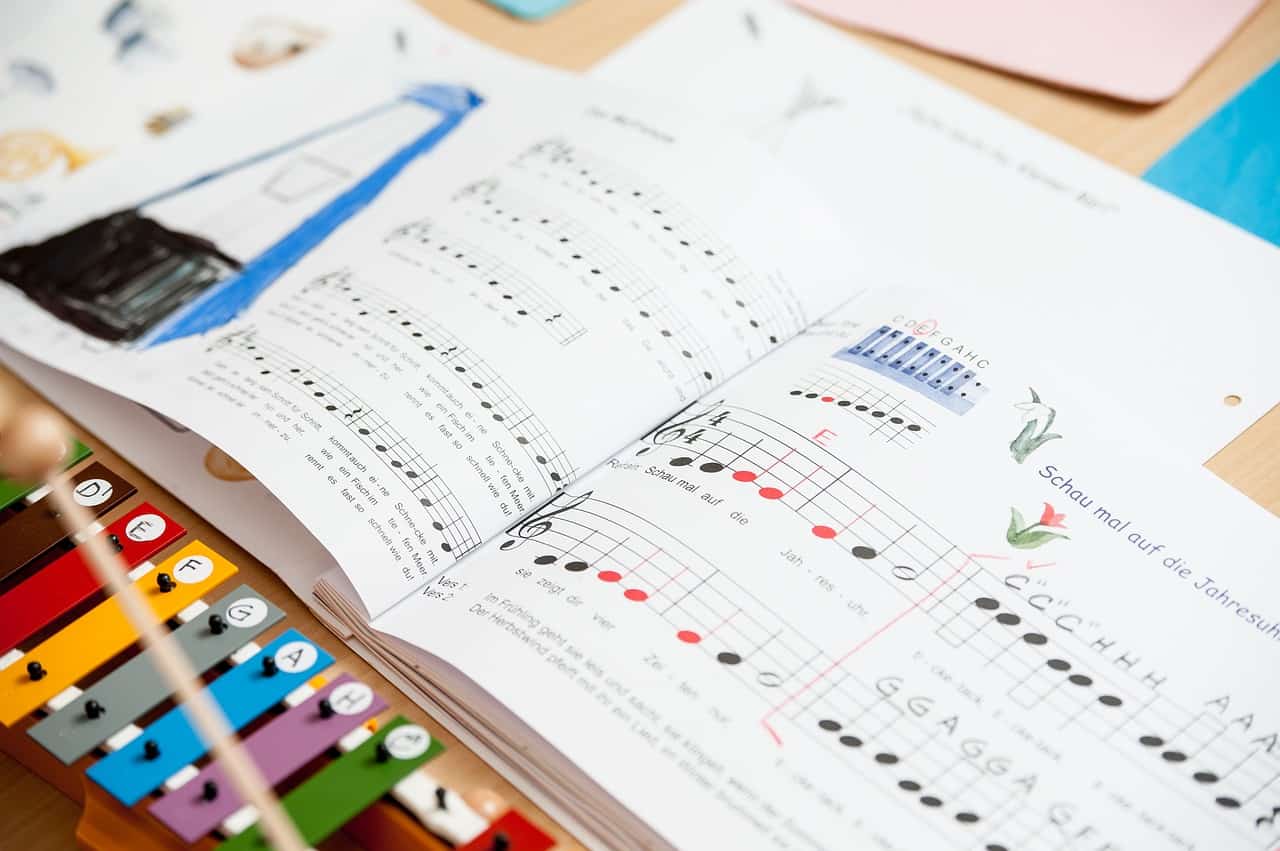
Schools across the world need music programs. Music primes the brain for learning and helps children achieve academic success
Music is the key to learning. And children, tweens or teens who are exposed to music in our schools learn easier.
Does your child’s school offer mandatory music programs? Are these programs offered from kindergarten through high school? Is there more than one music teacher for all the students in the school?
Hopefully, your children are in a school district that has an excellent music and arts program beginning in kindergarten and continuing through high school.
Why? Because education in music and the arts has not only been shown to be an essential ingredient for our children’s academic success; it was mandated with the passing of two federal laws: Goals 2000: Educate America Act in 1994 and No Child Left Behind Act (NCLB) in 2001.
Both documents nationally recognized the importance of arts education and specifically list the arts—music, visual and performing arts—as core subjects’ students are to learn in school.
The term “core subjects” are topics or areas of education that every student needs to learn, no matter his or her future occupation and include the “3-R’s” of reading, writing, and math. Listing the arts as one of the core subjects (the 4th “R”) was an important designation that was meant to give the arts distinction in the classroom and qualify school arts programs for federal grants.
Music in Our Schools: Mandated by Law
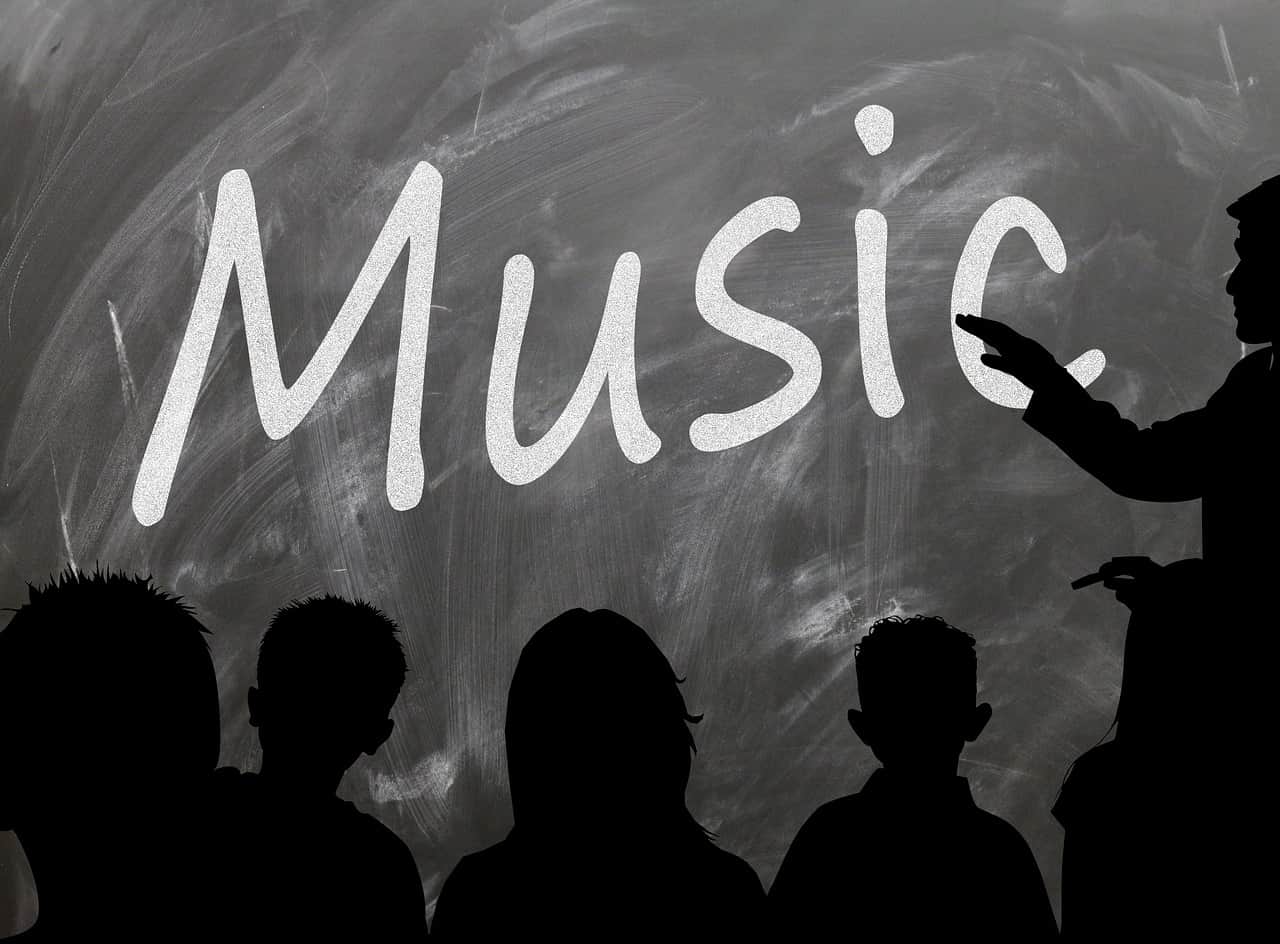
Mandatory music programs in the schools have been mandated by 2 laws: Goals 2000: Educate America and No Child Left Behind
However, even though the arts were mandated by law and nearly all 50 states have arts-education standards and dozens of reports and statistics show support for the arts, what is really happening with school music programs varies from school to school.
The sad reality is: music, visual and performing arts education have been relegated to the sidelines or narrowly eliminated in most schools nationwide. “The disparity between what schools offer and what students actually receive can be enormous,” says Richard Kessler, Dean of Mannes College the New School of Music.
The bottom line: mandates and policies for the inclusion of the arts in classrooms across the United States have become nothing more than empty talk as school districts zero in on test scores and incrementally eliminate the arts.
This is unfortunate because if school administrators and decision-makers actually looked at the research, they would see that music education INCREASES a child’s ability to learn thus increasing test scores as a natural evolution.
Music in Our Schools: The Evidence
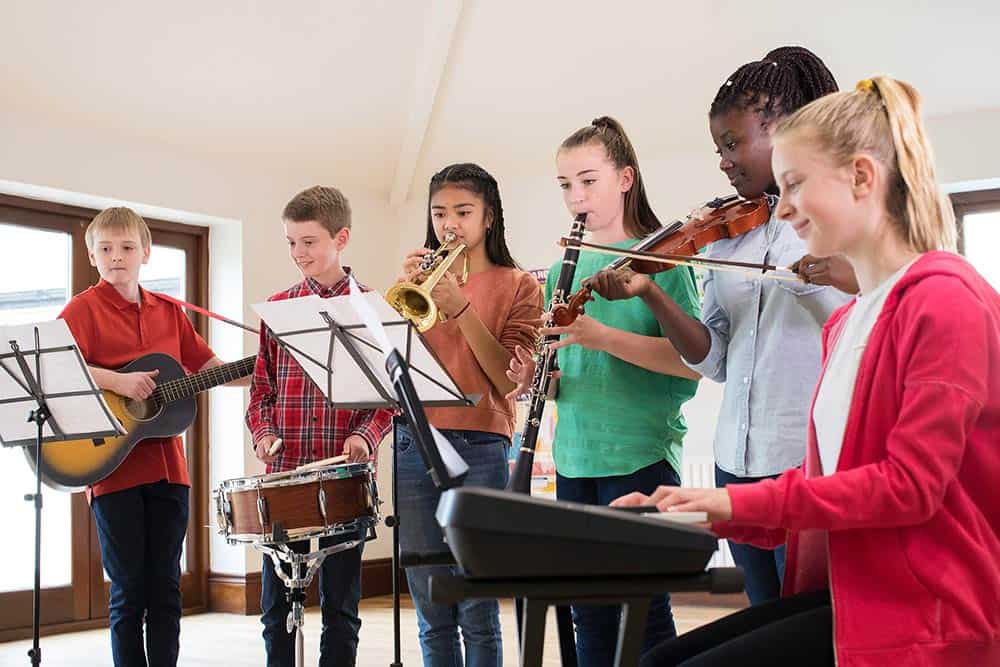
Schools that have music and arts programs have better test scores, attendance and create children with better problem-solving skills
Here are some questions parents, teachers, schools and school districts should ask:
- Are the arts important to a child’s education, brain development, and future success?
- Does music actually help a child to learn better and more effectively?
- Do the arts really build a bigger better brain?
- Do the arts help children learn academic concepts more easily?
- Does an education in the arts increase a child’s chances for future success?
- Should parents, teachers, and educators fight for arts programs or better-quality arts programs in their local schools?
The evidence says, “Yes!”
Music in Our Schools: The Studies
Here is a partial list of studies showing the necessary role music plays in the education, brain development and learning of children and supports the need of having comprehensive music programs in ALL schools across America: (refer to my book for references)
#1: Music Enhances the Learning Process
The very systems that music nourishes—our integrated sensory, attention, cognitive, emotional and motor capacities—are the driving force behind all other learning. (Konrad)
#2: Music Develops the Brain and Improves Memory Skills
Young children who take music lessons show different brain development and perform better on memory tests that are associated with general intelligence skills such as literacy, verbal memory, visuospatial processing, mathematics, and IQ. (Trainor)
#3: Music in the Classroom Equals Increased Academic Performance
The arts can provide effective learning opportunities for students by increasing academic performance and better skill-building and reducing absenteeism. (The Impact of Arts Education on Workforce Preparation)
#4: Music in the Classroom Equals Better Math Performance
Students involved in orchestra or band during their middle and high school years performed better in math in grade twelve. The results were even more significant when comparing students from low-income families. Students who were involved in orchestra or band were more than twice as likely to perform at the highest levels in math than their peers who were not involved in music. (Catterall, Chapleau, Iwanaga)
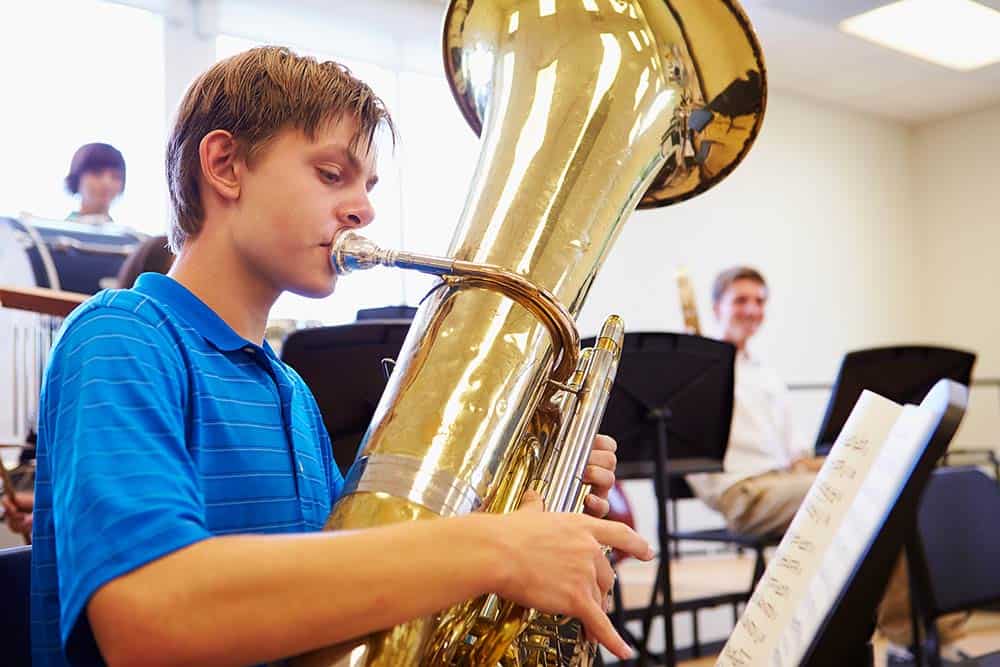
Did you know that schools that offer music programs have students who do better in math, learning languages and are more motivated to learn?
#5: Music Training Increases the Ability to Learn Foreign Languages
A team of researchers at the Auditory Neuroscience Laboratory at Northwestern University found that people who study a musical instrument are better able to process foreign languages because they are able to hear a difference in pitch and the music strengthens the auditory cortex. Nina Kraus, Hugh Knowles Professor of Communication Sciences and Neurobiology and Director of Northwestern’s Auditory Neuroscience Laboratory explains, “Music training is akin to physical exercise and its impact on body fitness; music is a resource that tones the brain for auditory fitness.” (Skoe, Kraus)
#6: Music Improves the Processing of Spoken Language
At Stanford University, two studies showed that mastering a musical instrument improved the way the human brain processes parts of spoken language. When students have ongoing musical experiences throughout their lives, they are able to detect small differences in word syllables and are able to distinguish split-second differences between rapidly changing sounds—two components essential to processing language. (Sturrock)
#7: Learning the Arts Nurtures Motivation
Students involved in the arts have increased sustained attention and are more persistent and willing to take risks—qualities needed for future jobs. They also have increased educational aspirations. (Critical Links: Learning in the Arts and Student Academic and Social Development)
#8: The Arts Contribute to an Increase in Self-Esteem and Problem-Solving Skills
For at-risk youth, the arts contribute to lower recidivism rates, increased self-esteem, the acquisition of job skills, creative thinking and problem-solving and communication skills. (The Impact of Arts Education on Workforce Preparation)
#9: Music Programs Equals Higher Attendance Rates
Schools with music programs boast a higher attendance rate than those without programs: 93.3% compared to 84.9% (Harris Interactive Poll)
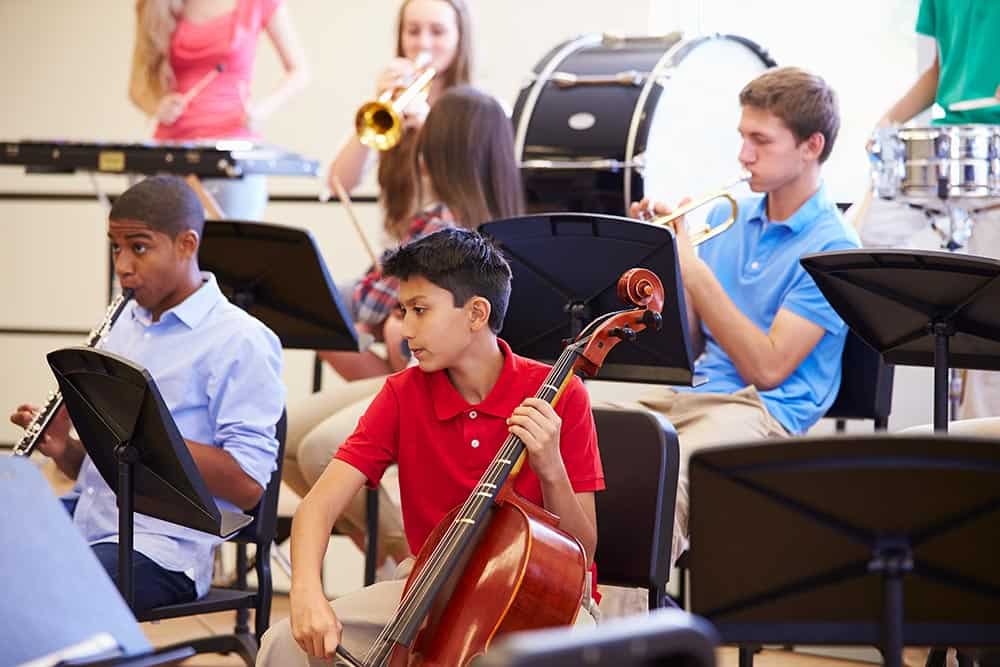
Music programs in schools have students who are better at problem-solving and critical thinking skills
#10: Music Equals Higher Standardized Test Scores
Students in high-quality music programs score higher on standardized tests regardless of socioeconomic levels. Students scored 22% higher in English and 20% higher in math than students in deficient music programs. (Johnson, Memmott)
#11: Music Equals Higher SAT Scores
Students of the arts continue to outperform their non-arts peers on the Scholastic Aptitude Test (SAT). In 2006, SAT takers with experience in music performance scored 57 points higher on the verbal portion of the test and 43 points higher on the math portion than students with no experience in the arts. Scores for those with coursework in music appreciation were 62 points higher on the verbal portion and 41 points higher on the math portion. (The College Board)
#12: Music in the Classroom Equals Higher Graduation Rates
Schools with music programs have significantly higher graduation rates than those without music programs: 90.2% as compared to 72.9%. Exceptional music programs have an even higher rate of graduation: 90.9%. (Harris Interactive Poll)
Music in Our Schools: The Difference Parents Can Make
I have found that once parents understand how music can help their children learn, they want strong music programs in their schools that include singing, movement, instrumentation, band, and orchestra.
Some school districts offer these comprehensive music programs with multiple music teachers but many do not. And the majority of schools do not offer music programs until the child is in grade four and then it’s optional.
If your school music program doesn’t exist or is optional, or the program only has one teacher for 1000 students—it’s likely a problem of funding or a lack of prioritizing music programs.
Either way, music in the schools is now federally mandated law and all schools need to offer something.
Here are 4 ideas, parents can take to advocate for mandatory school music programs (keep in mind—this is just the beginning)
#1: Educate the Administrators on the Importance of Music Education
Bring the 12 studies on this blog to the attention of your school district. They are educators and have a responsibility to understand how students learn best. And music is a key component in education and lays the foundation for learning.
#2: Make Music Classes Mandatory rather than Optional
Let your school district know that music in the schools is a federal law and all children must be enrolled in a school music program. Music classes are not optional.
#3: Music Programs vs. Computer Programs
If school administrators tell you there is no funding or very limited funding for school music programs, find out how much money is going into computer programs and find ways to divert this money into music programs.
There is overwhelming research showing that children do not need computer time at school (maybe in high school—but not in lower grades). Most kids have been exposed to computers at home and they should not be sitting in front of a computer screen that gives limited learning, causes eye strain, headaches, and other physical issues.
Plus, research shows that too much screen time rewires the brain for a short attention span—and there is a growing number of children with short attention spans. Music does the opposite—it builds the brain while increasing attention in children and teens.
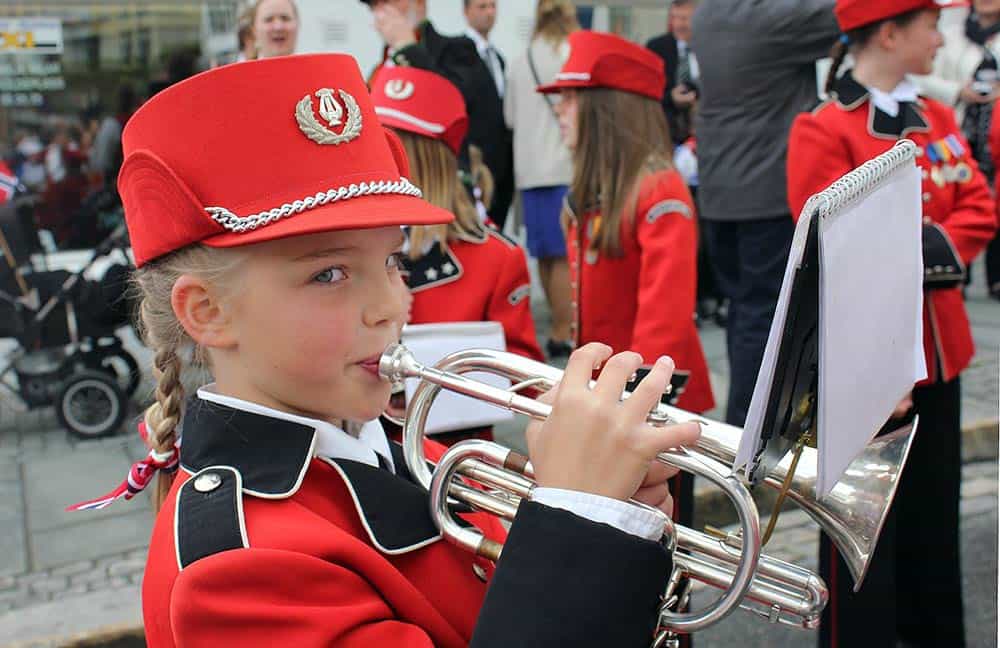
When your child is involved in school music programs–they form lasting and powerful memories of how it positively affected their learning and lives!
#4: Join Forces with the Parent-Teacher Association (PTA)
Many PTAs work hard to bring some type of music exposure to children in their schools. Some offer quarterly music appreciation classes, and others bring in musicians for hands-on music learning. I’ve been involved in many of these programs and although they don’t take the place of music instrumentation or a chorus program—it’s a beginning.
Don’t Give Up—Let Your Voice Be Heard!
Change happens when one small voice of dissent doesn’t give up. As more parents are made aware of the value of arts education—together your voices will gather momentum and turn into a powerful chorus that can bring music into the lives of children one school at a time.
Tell us about the music programs that are offered in your schools. Are you happy with them? Why or why not? Please comment in the section below.
Want to remember this post? Post, “Warning: 12 Important Reasons for Music in Our Schools” to your favorite Pinterest board!
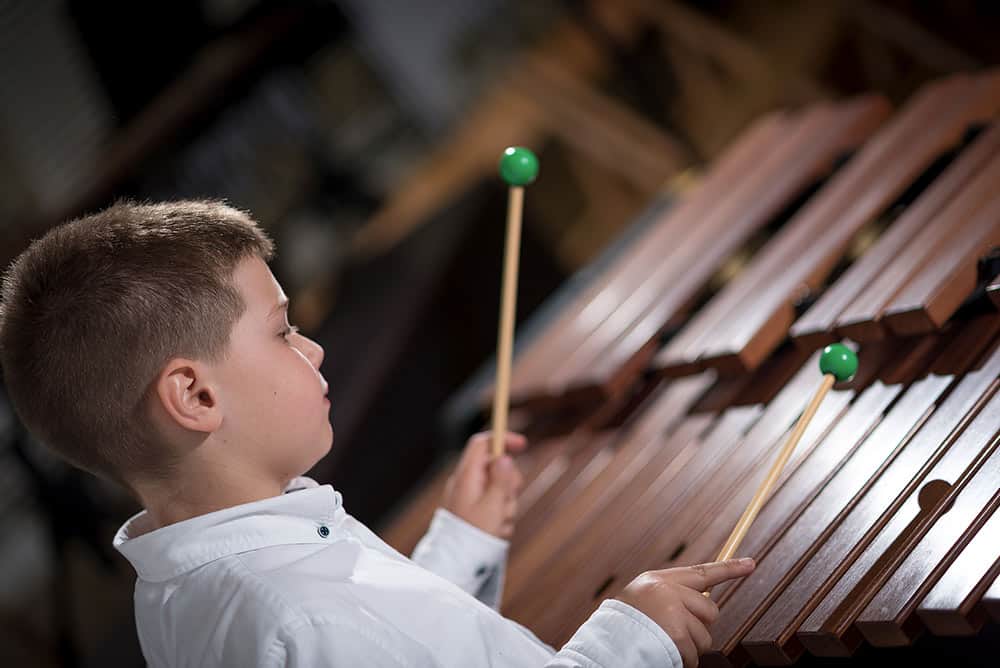
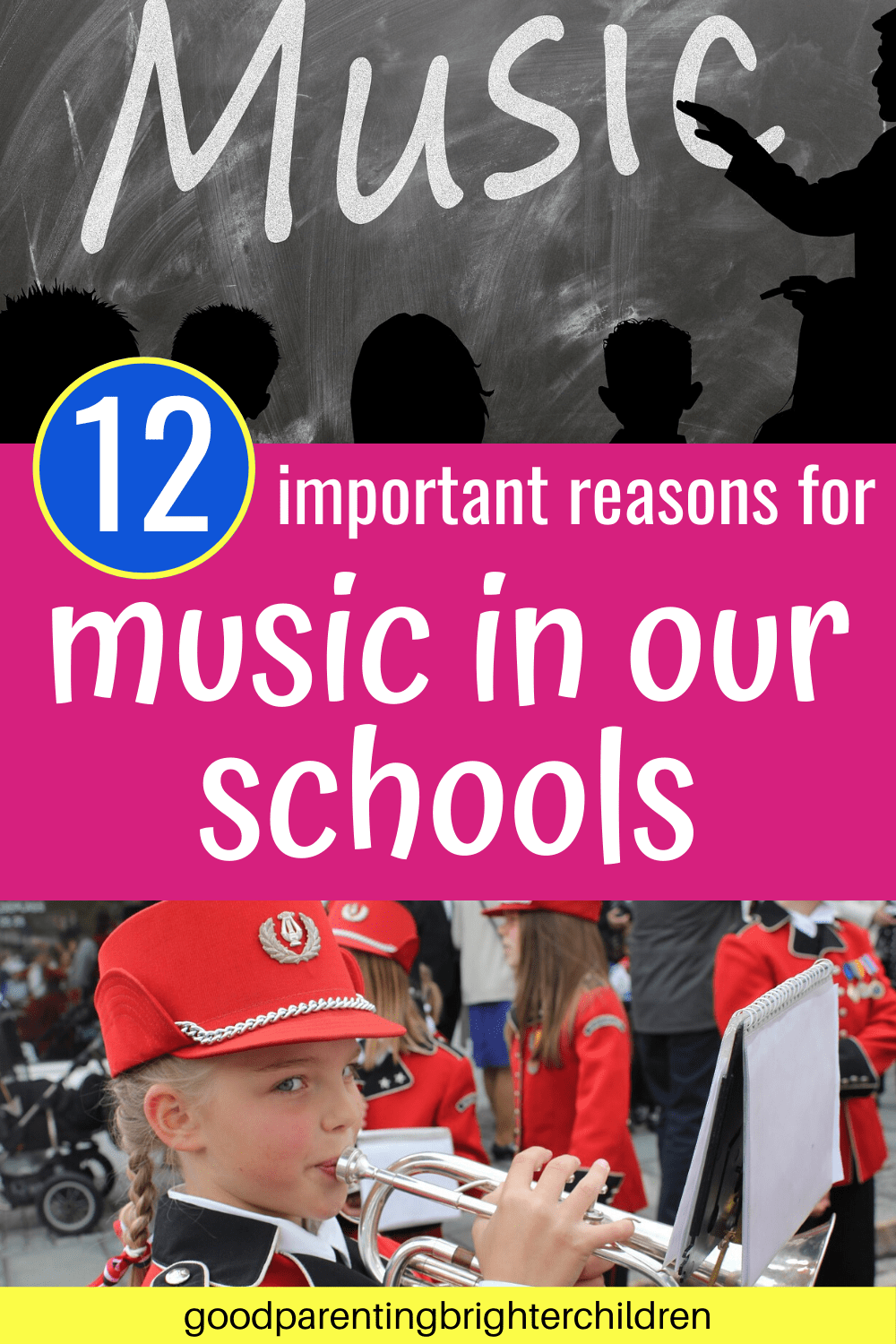
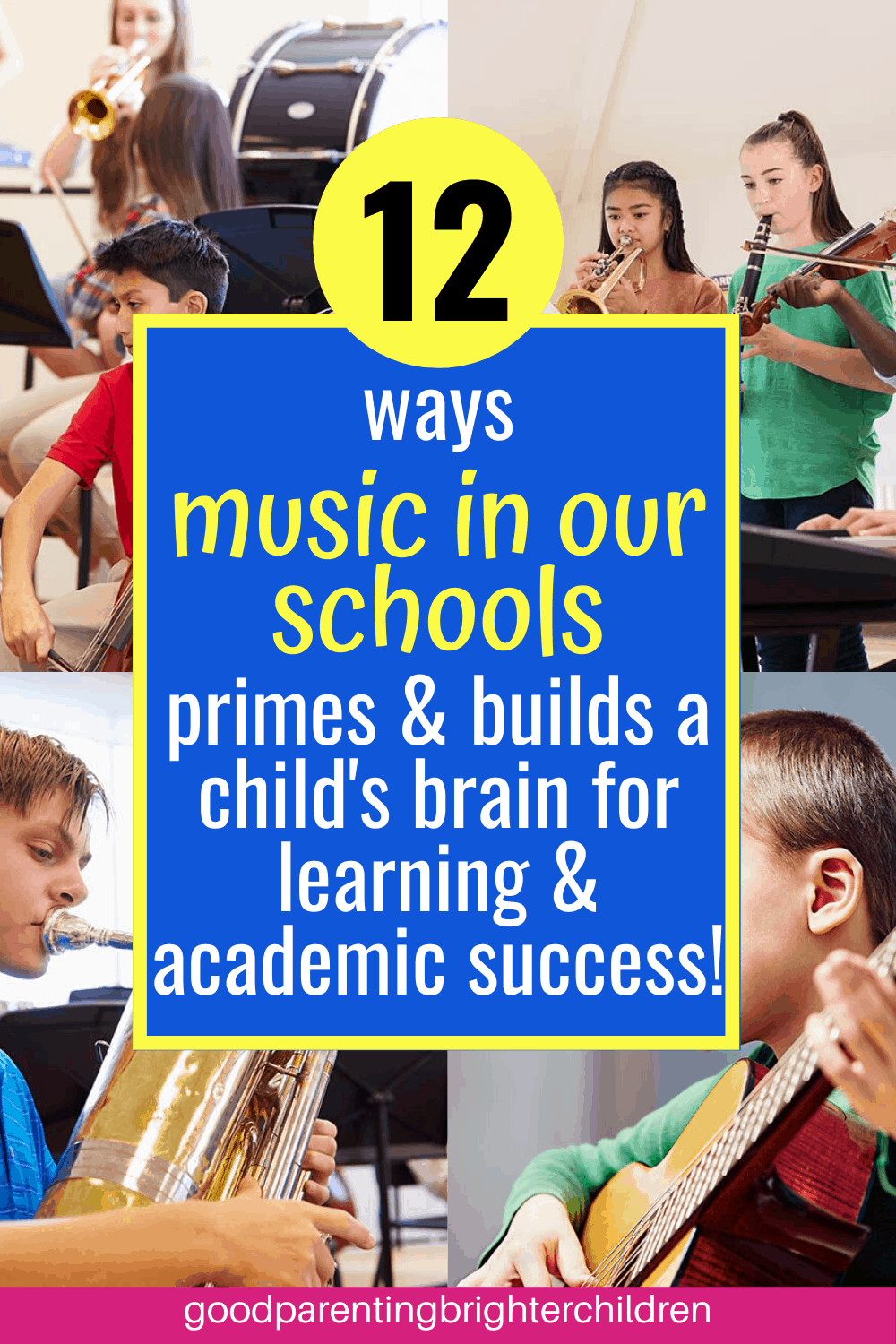


Yes, yes, and yes!! Without music in schools, I don’t know where our son would be. It’s what gets him excited to go to school each day. It’s what has given him a sense of community in his school. It’s what helped bridge the gap from Elementary to Middle and Middle to High School and made the transition less scary since he had an instant group of friends. I can’t imagine our lives without music and I can’t brag enough about the music teachers and band directors we have had the privilege to meet along the way! Great post, Sharlene.
It’s so true! Everything you noticed with Zach–we noticed with our sons. What I was especially grateful for was how it helped them transition from one school to the next–like you. And those band and orchestra teachers–they don’t just put in a 40-hour week–there were many different music activities our kids were involved with on the weekends where their band and orchestra teachers were there–supporting the kids every step of the way. Thanks for sharing!